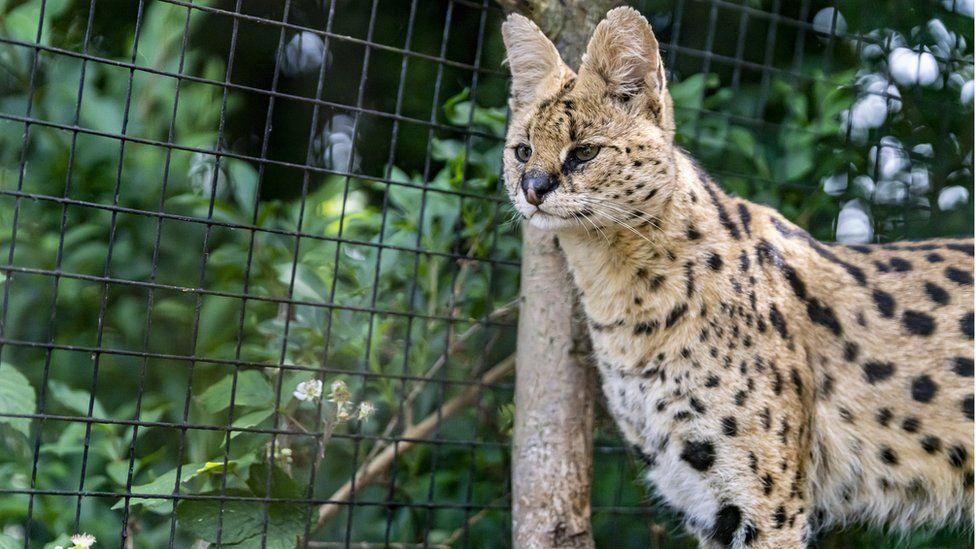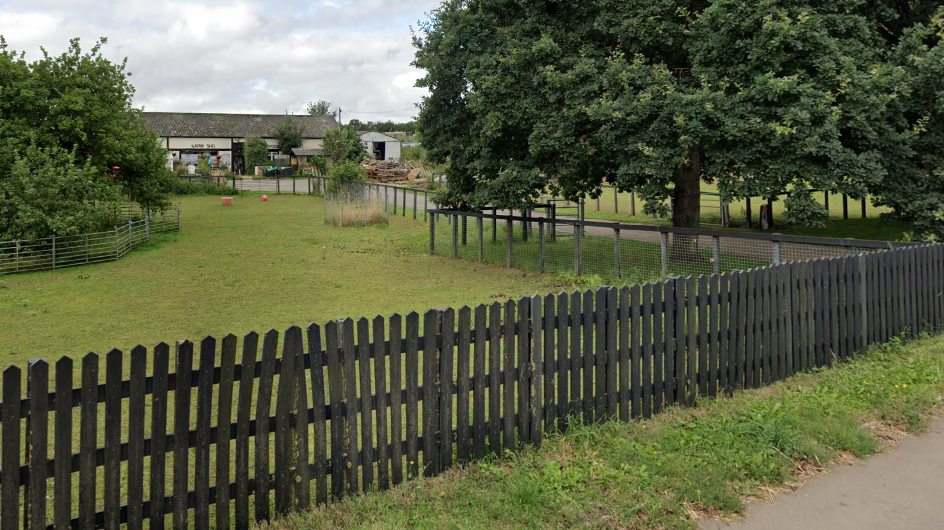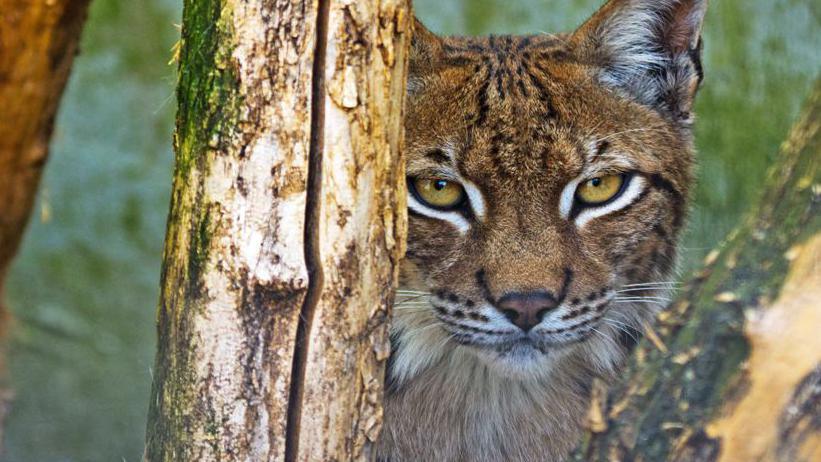Big cat park owner disliked modern medicine - trial

The Cat Survival Trust is based in Codicote near Welwyn, Hertfordshire (pictured is one of its serval cats)
- Published
The owner of a big cat sanctuary caused unnecessary suffering to animals through sheer neglect and had a "dogmatic dislike of modern veterinary medicine", a court heard.
Terrance Moore, 77, from The Cat Survival Trust based near Welwyn, Hertfordshire, is on trial accused of 12 counts of causing unnecessary suffering to an animal.
He is also charged with 11 counts of using an animal species for commercial gain without a licence.
St Albans Crown Court was told he made money by offering "unique opportunities to get close to big cats" without the proper permission.
Prosecutor Charles Miskin said dead animals were found in freezers and had not been cremated, and added: "The place was a shambles.
"It was messy and dirty.
"Food preparation, storage and disposal was not hygienic, the housing of some animals was inadequate or insecure, and a large number of unvaccinated domestic cats were wandering around exposing the trust cats to risk of disease, especially as they themselves weren’t vaccinated."

The Cat Survival Trust was not open to the public, but photographers could pay for entry
Mr Miskin said the sanctuary was not a zoo, did not have a zoo licence and was not open to the public, but it did welcome members.
Mr Moore was responsible for the care of all the animals on the site, but the prosecutor said: "[He] neglected his basic duty of care towards some of these animals and caused the ones particularised unnecessary suffering, either though sheer neglect or through a dogmatic dislike of modern veterinary medicine or for financial reasons".
The sanctuary houses wild cats including Bengals and snow leopards.

The prosecution said there was a pattern of general neglect to the animals, including a lynx (one of which is pictured at The Cat Survival Trust)
The jury heard that Mr Moore used websites to promote opportunities for photographers "to get close to the big cats", that cost hundreds of pounds.
The use of animals for commercial gain is prohibited unless holding a permit from the Animal and Plant Health Agency, but Mr Moore did not have this certificate, the prosecutor said.
Police first visited the sanctuary on 27 July 2022 with a vet, and found animals suffering from various conditions and no veterinary care had been sought, jurors were told.
Officers returned on 13 April 2023 and removed more than 20 animal carcasses from the freezers and there were "no records of the mortalities", the prosecution claimed.
The trial continues.
Follow East of England news on Facebook, external, Instagram, external and X, external. Got a story? Email eastofenglandnews@bbc.co.uk, external or WhatsApp 0800 169 1830